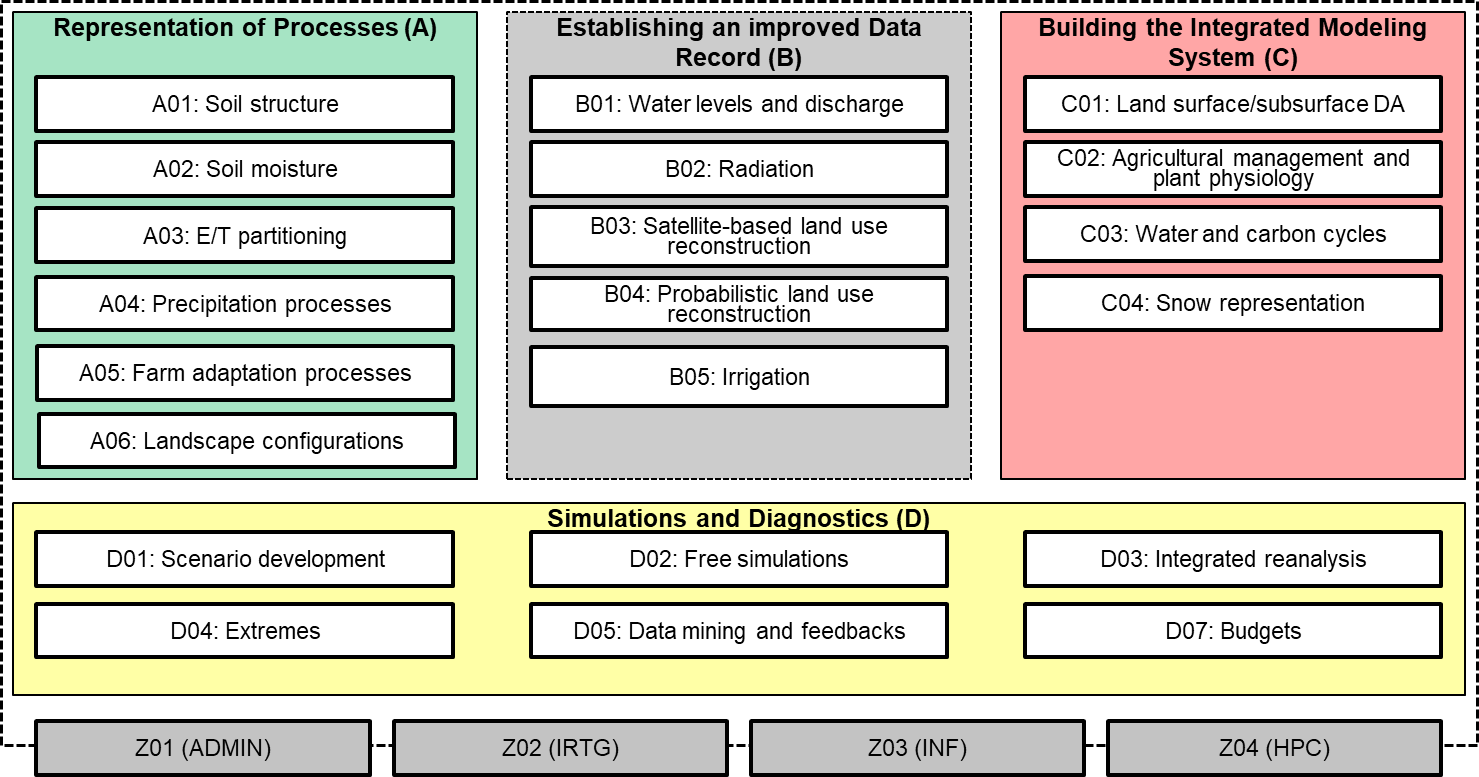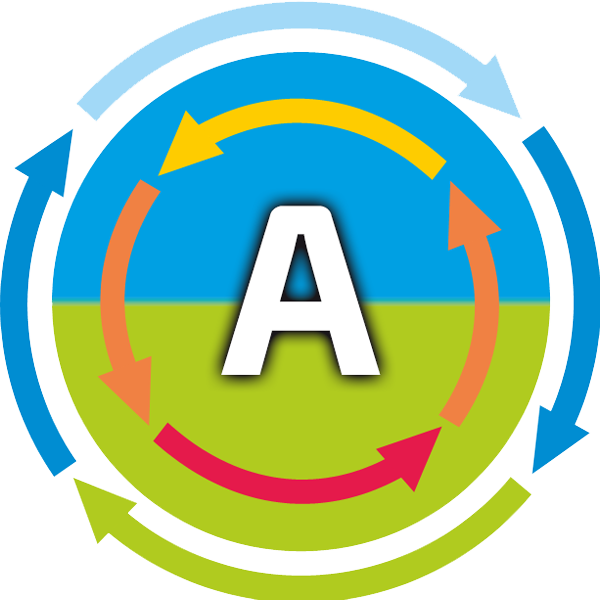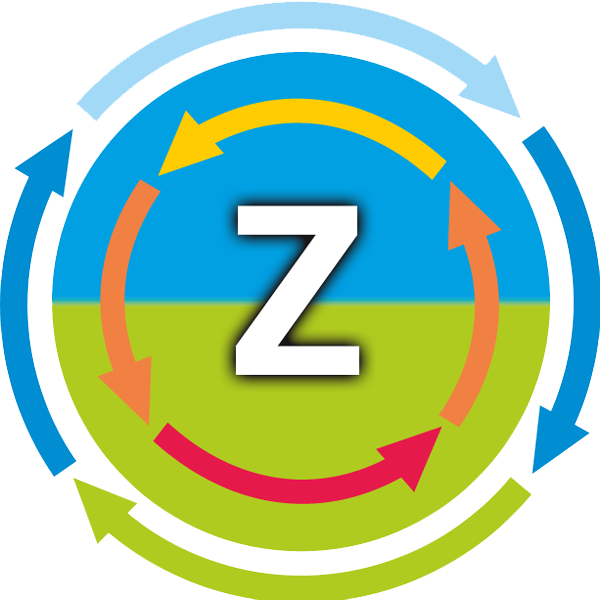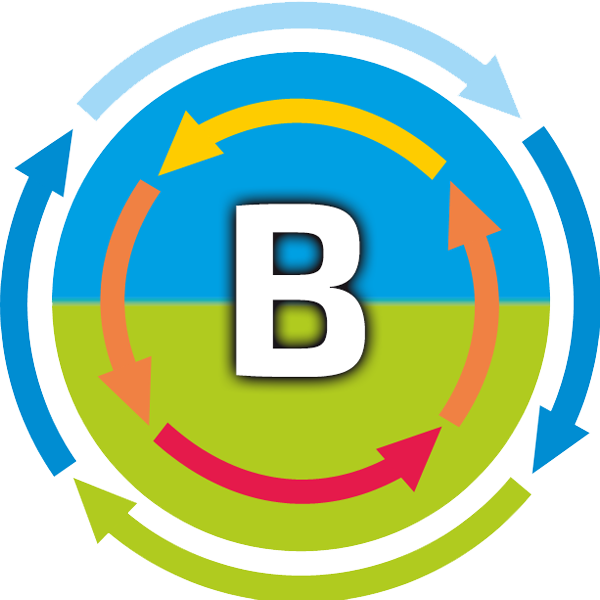The structure of the CRC considers four clusters. This will enable us to take a more comprehensive view and merge process understanding and integration of experimental results. All projects will be supported by cluster Z.


Representation of processes
The CRC’s central ‘scientific instrument’ will be a regional Earth System Model (ESM) that allows free simulations with various drivers and, as part of an Integrated Monitoring System (IMS), integrates simulations and observations into an optimal, data-informed synthesis by assimilation, embedded in lateral boundary conditions provided by global models.
Cluster A will improve the process representations in the IMS. The emphasis in the 1st phase will be on precipitation processes, including cloud formation and aerosols, moisture redistribution in (nearly) saturated soils, evapotranspiration, and anthropogenic processes – including how farmers adapt to changing climate in terms of land management, determinants of land-use changes, including the rural-urban fringe and agri-environmental policies, as well as interactions between agriculture and forestry at the landscape level.
Establishing an improved data record
To provide the best basis for modelling and testing hypotheses, Cluster B will improve the quality of observational records of storages and fluxes using multi-sensor approaches and including the latest sensors and innovative methods.
Combined with existing records, this extended database will allow monitoring drying and wetting patterns, including extremes, with unprecedented detail and accuracy, optimize the model-data integration, challenge the quality of the Integrated Monitoring System (IMS), and scrutinize trends from simulations, thus enabling cause attributions.
Cluster B will develop improved representations of Land Use and Land Cover Change (LULCC) and water management from remote sensing, census data, and probabilistic approaches to be used as boundary conditions in C and D and for investigations of processes in A.
Building the integrated modelling system
Cluster C will set up and further improve the Integrated Monitoring System (IMS), including the ocean, for the period 1990-2050. Projects will focus on the implementation of improved representations of agricultural land use and plant physiology, soil water, groundwater, and snow, and on preparing for the improved representation of the coupling of water and carbon fluxes.
The model and data assimilation framework developed here, including improved process representations and new data products from Clusters A and B, will be used by Cluster D for dedicated simulations and reanalyses to test the central hypothesis of the CRC.

Simulations and diagnostics
Cluster D will build on the efforts from A, B, and C to address the central hypothesis of the CRC. The projects will synthesize the most comprehensive reanalysis of the water and energy cycle to date for the entire modelling region, identify past and emerging patterns of drying and wetting using AI techniques, including extremes, and disentangle the role of land use, land and water management in these patterns for other anthropogenic drivers and natural variability.
Furthermore, D projects will create scenarios for future land and water use, and develop criteria for sustainable land use trajectories at the continental scale and for focus regions, i.e. characterize the prospects of climate-smart land and water use governance.

Service projects
Service projects will be established to support all scientific projects of the CRC. Project Z01 will be in charge of central administrative and support tasks, the overall coordination, gender measures, outreach, and (policy) communication, while Z02 will manage the integrated research training group (IRTG) of the CRC.
Z01 and Z02 will thus also support the CRC’s governance structures. Project Z03 will be responsible for the CRC’s research data infrastructure. Project Z04 will finally aid all other projects through high-performance computing (HPC) support, including specific code maintenance.



